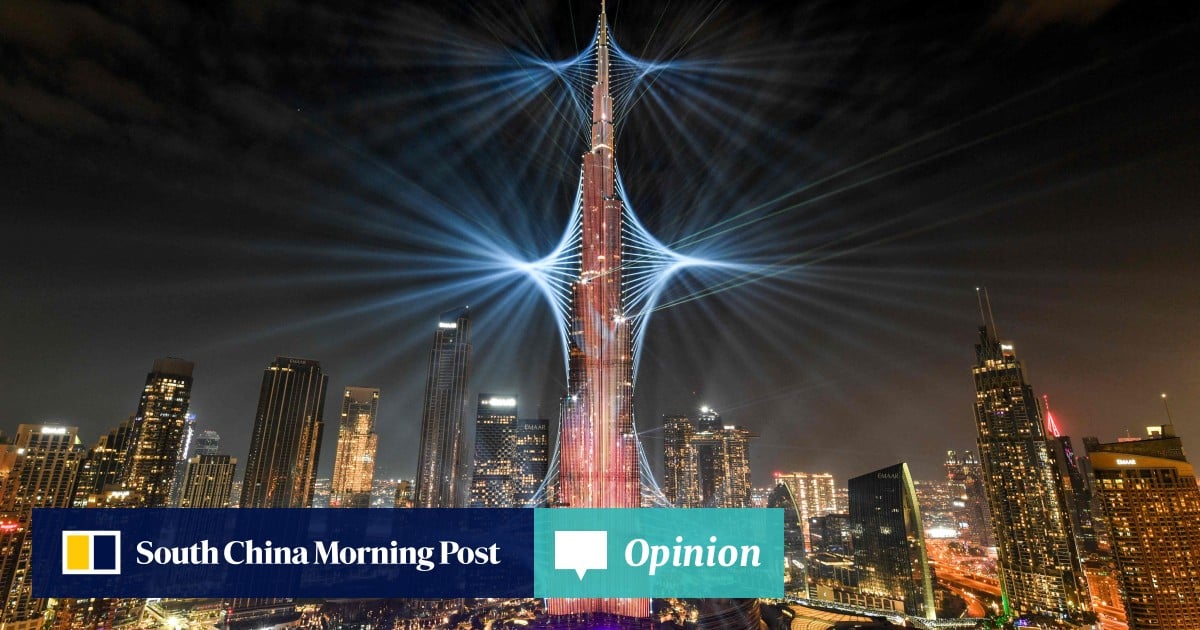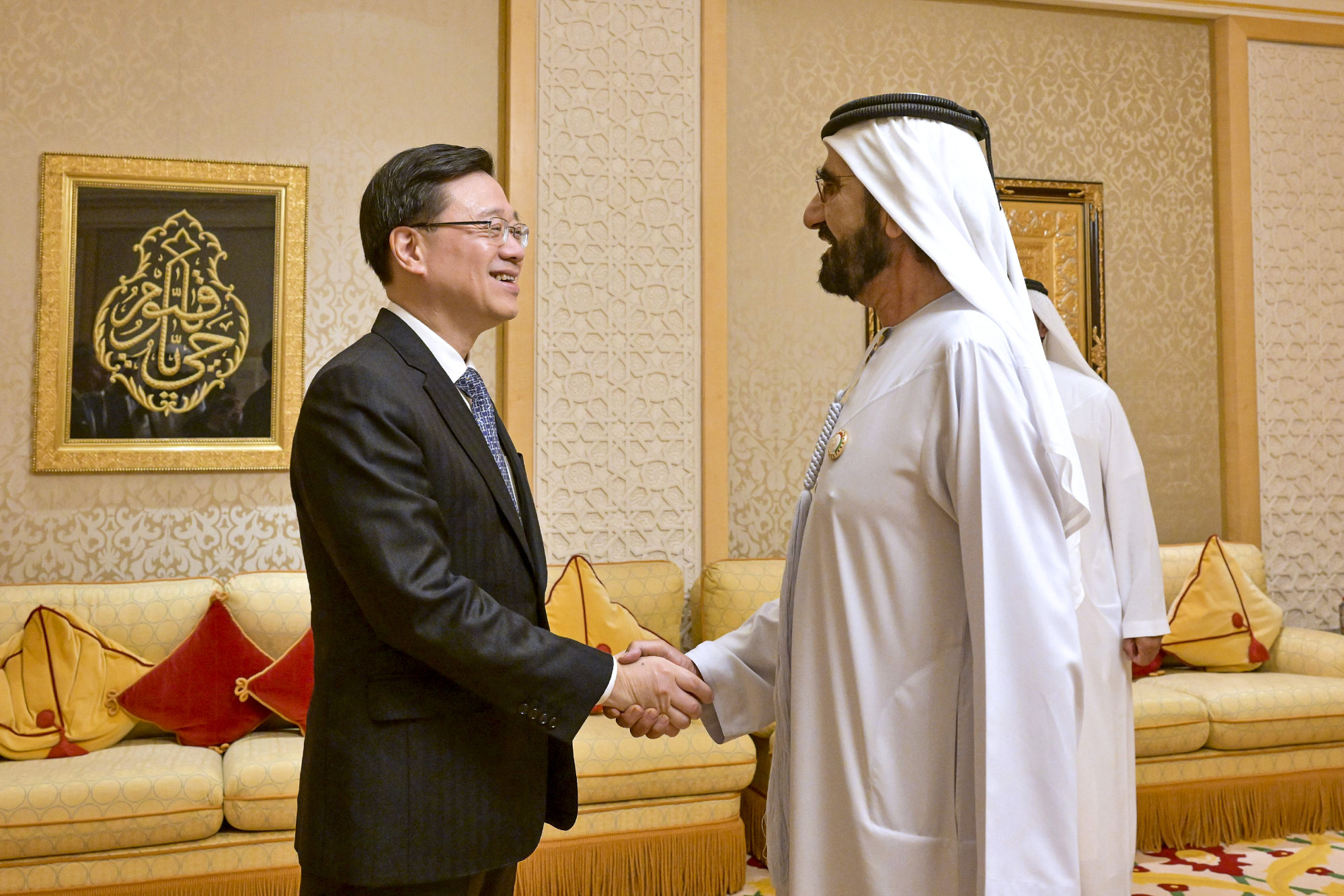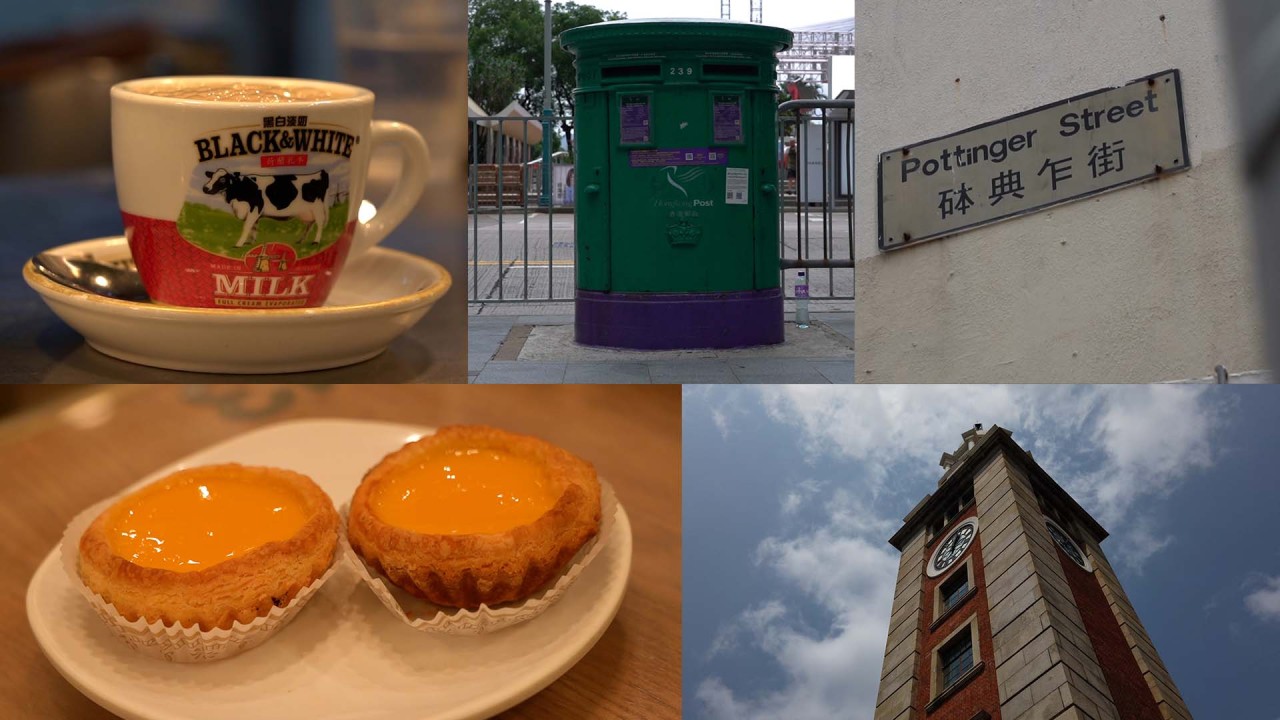
07 Jan Opinion | Rambunctious Dubai a reminder to Hong Kong – and the world – that democracy is not everything
The contrast with Dubai is surreal. It has never had pretensions of being a democracy, instead being an absolute monarchy. But the absence of democracy does not seem to matter. Dubai has a chequered interest in human rights, and tough restraints on press freedom, but the Western press that hounds Hong Kong does not seem to care.
As I ponder such inconsistency and hypocrisy, I am reminded of Richard Hughes’ description of Hong Kong and its people in his 1976 book Borrowed Place, Borrowed Time: “It is a rambunctious, freebooting colony, naked and unashamed, devoid of self-pity, regrets or fear of the future.”
It seems Dubai has borrowed some of those characteristics. It may not have been a colony, but around 90 per cent of its population comes from overseas, with only the right to work for as long as work visas last. They are there to work hard, save hard and interfere in no one else’s business, confident that no one will interfere with theirs. That has generated a “freebooting” community that is “devoid of self-pity, regrets or fear of the future”.
Above all else, the mood is “rambunctious” – not merely confident or optimistic, but positively boisterous. Dubai today has rambunctiousness, and Hong Kong has lost it.
These thoughts were augmented by a column in The New York Times in late December by three-time Pulitzer Prize winner Tom Friedman, who flew to Dubai for Cop28. Friedman first visited Dubai back in 1980, when traditional wooden fishing dhows bobbed in the harbour.
Apart from his obvious focus on the climate summit, he was interested in comparing Dubai not with Hong Kong but with Gaza. Both are tiny pockets of land. Both are Muslim. Both in 1980 were little more than “a convergence of sand and seawater”. But leaders since then have made different choices for different reasons, creating radically different outcomes.
In Dubai, Friedman sees “two generations of monarchs who had a powerful vision of how the UAE in general, and the entire Emirate of Dubai in particular, could choose to be Arab, modern, pluralistic, globalized and embracing of a moderate interpretation of Islam”.

He sees Muslim leaders that have chosen to be radically open to the world, to embrace free markets and aggressive economic diversification, to become “one of the world’s most prosperous cross-roads for trade, tourism, transport, innovation, shipping, and golf”.
Saudi Arabia, UAE taking ‘a step away’ from US with Brics membership: analysts
Saudi Arabia, UAE taking ‘a step away’ from US with Brics membership: analysts
So it is with Hong Kong. We and the world should be less concerned about the precise architecture of a political system – there are after all dozens of different forms of democracy across the world, some of them highly dysfunctional – and more concerned about the wisdom, integrity and vision of our leaders, and the priority they give to the needs and interests of their own people. If they can generate a mood of optimistic rambunctiousness, so much the better.
David Dodwell is CEO of the trade policy and international relations consultancy Strategic Access, focused on developments and challenges facing the Asia-Pacific over the past four decades

